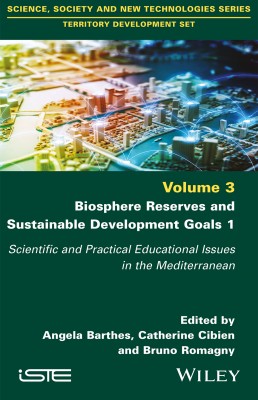
Since 1971, UNESCO’s Man and the Biosphere (MAB) Programme has embraced a number of principles that link the political, scientific and academic spheres.
Biosphere Reserves and Sustainable Development Goals 1 presents these areas as privileged spaces for experimenting with operating methods specific to cross-cutting objectives and issues. These areas encourage the development of interdisciplinary research, supported by a worldwide network to disseminate experience, approaches and know-how.
The various global and local political scales are linked here, with different consequences for the reconfiguration of local political arenas, for specific modes of development linked to a renewed relationship with knowledge, powers and institutions, and for renewed relationships between the worlds of science, education and territorial governance.
Part 1. Biosphere Reserves and Sustainable Development Goals: Multidisciplinary Scientific Issues.
1. Man and the Biosphere: A Precursory Program for the Next World, Meriem Bouamrane and Didier Babin.
2. Humans and Nature: A Story to be Rewritten, Magda Bou Dagher Kharrat, Éliane Bou Dagher, and Rhéa Kahalé.
3. Social Representations, Collective Organization and Mediterranean Biosphere Reserves, Angela Barthes, Bruno Romagny, Jean-Marc Lange, Lahoucine Amzil, Roser Maneja, Mohammed Aderghal, and Véronique Chalando.
4. Challenges and Opportunities of Collaborative Research on Biosphere Reserves in the Mediterranean, Moustapha Itani, Salma Nashabe Talhouk, Wassim El-Hajj, Nivine Nasrallah, and Hannah Abou Fakher.
5. Scientific Tourism in Multi-Labeled Protected Areas: The Ecological Transition and Controversy in the Mountains, Mikaël Chambru and Cécilia Claeys.
Part 2. Educational Practices Relating to Biosphere Reserves: Balance and Prospects.
6. Teaching How to Produce Differently at a Biosphere Reserve, Véronique Chalando and Angela Barthes.
7. The Sustainable Management of Biosphere Reserves: What Are the Challenges for Agricultural Education? Nina Asloum, Guillaume Gillet, and Laurent Bedoussac.
8. Collective Skills from Partnerships Between Protected Areas and Teachers, Sylviane Blanc-Maximin.
9. The Instrumentalization of Education in Sustainable Development at the Service of Tourism: The Case of the Arganeraie, Salma Itsmaïl and Bruno Garnier.
10. Biosphere Reserves and Political Skills Transfer in University Curricula, Melki Slimani, Angela Barthes, and Jean-Marc Lange.
11. Education and Mediation in the Arganeraie: Alliance Strategies Between Education and Tourism Actors? Saïd Boujrouf and Abdullah Aït L'Houssain.
Angela Barthes is a professor at the University of Aix-Marseille, France, and specializes in environmental education and rural development.
Catherine Cibien is director of the French committee of UNESCO’s Man and the Biosphere (MAB) Programme.
Bruno Romagny is an economist and director of research at the French National Research Institute for Sustainable Development (IRD – Institut de recherche pour le développement), Laboratoire population-environnement-développement (LPED), France.